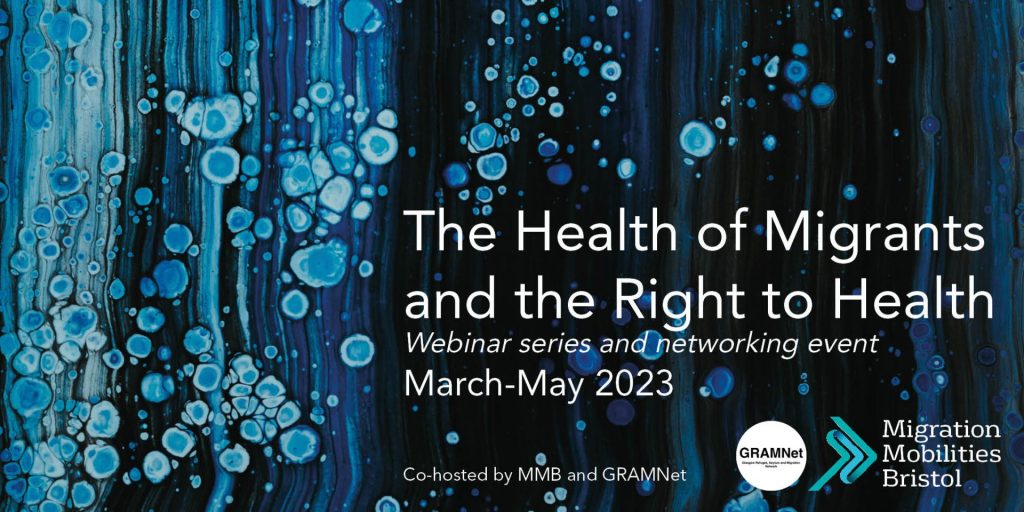
- This event has passed.
Exploring the mental health and psychosocial experiences of asylum seekers, refugees and undocumented migrants in the post migration context
The second webinar in our series ‘The Health of Migrants and the Right to Health‘, co-hosted by MMB and GRAMNet.
Re-thinking the asylum process as a social determinant of health. With Alessio Albanese and Kate O’Donnell.
Ample research has demonstrated the effects of pre migration experiences (e.g., war, persecution, violence, torture) on the mental health of asylum seekers, refugees and undocumented migrants. More recently, however, research has begun to illustrate the impact of post-migration life difficulties on the psychosocial experiences of these migrant groups. Evidence shows that particular areas of concern for the mental health of these populations include: migration detention, the asylum system, fear of deportation, poverty, destitution, housing issues, language and communication difficulties, and poor access to healthcare.
Three methodological approaches to collect and analyse data were used: a systematic review and meta ethnography, Reflexive Thematic Analysis (RTA) and the theory of Candidacy. The systematic review included the qualitative component of 20 studies (11 qualitative and 9 mixed methods), assessed against pre-established inclusion criteria. These were analysed by applying a meta-ethnographic approach. Subsequently, 18 asylum seekers, refugees and undocumented migrants based in the Glasgow area were interviewed. RTA was employed to analyse the data gathered. The interviews were then re-analysed using the theory of Candidacy to understand in more detail participants’ journeys to accessing the services needed (including healthcare).
Alessio Albanese is a trained psychotherapist and has recently completed a PhD at the University of Glasgow. Alessio’s research interests include social determinants of mental health and health inequalities in marginalised groups.
Kate O’Donnell is a health services researcher working for over 20 years in primary care research. She has a particular interest in the experiences of marginalised populations accessing health care and in the use of theory to enhance our understanding of those experiences.
Further information and link to register here.

About the series
Health is a fundamental human right, yet in practice, there are many barriers to the realisation of ‘Health for All’. The health inequalities and barriers to access healthcare systems faced by people on the move and by non-citizens more generally, have long been recognised in research, policy and practice. While the World Health Organisation continues to advocate for ‘migrant sensitive health systems’ (2010), healthcare systems are bounded within the nation state, subject to the laws and policies of governments that increasingly restrict the rights of ‘migrants’ to access their rights. As rights to health are restricted, health and social protection systems are mobilised within hostile environment regimes as a means of surveillance.
The COVID-19 pandemic illustrated the need for universal health care and the fragility of national health systems. This series of four seminars and one online networking event is organised by University of Glasgow’s Refugee, Asylum and Migration Network (GRAMNet) and University of Bristol’s Migration Mobilities Bristol (MMB) will reflect on access to health care for migrants, refugees and those seeking asylum. Starting from different disciplinary standpoints, the speakers offer empirical and theoretical work exploring the relations between health and migration and the role of migration systems in the production of health inequalities. We will end the series with a (fun!) online networking event.
Visit the webinar series webpage here and the MMB Health and Migration page here.

